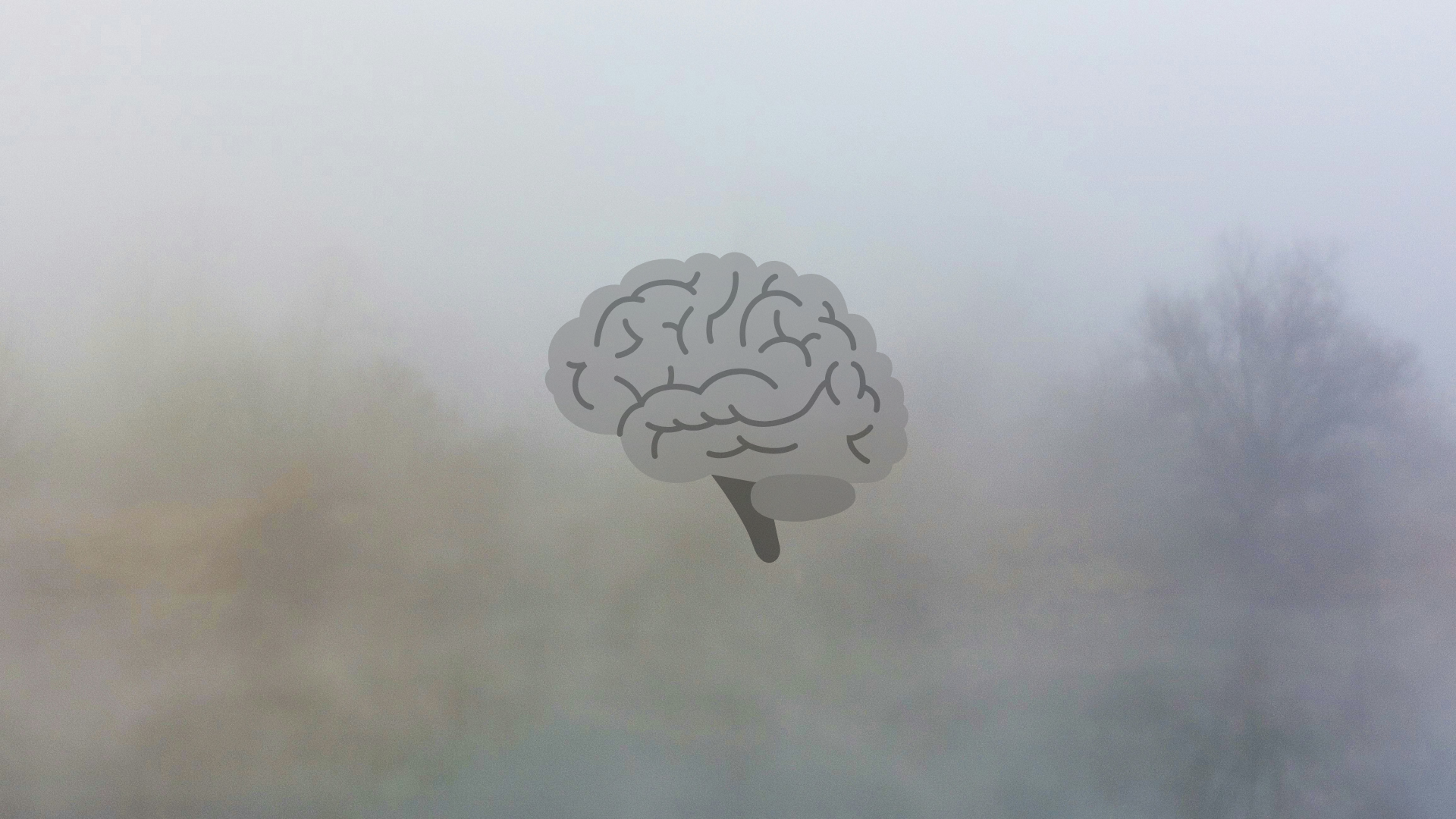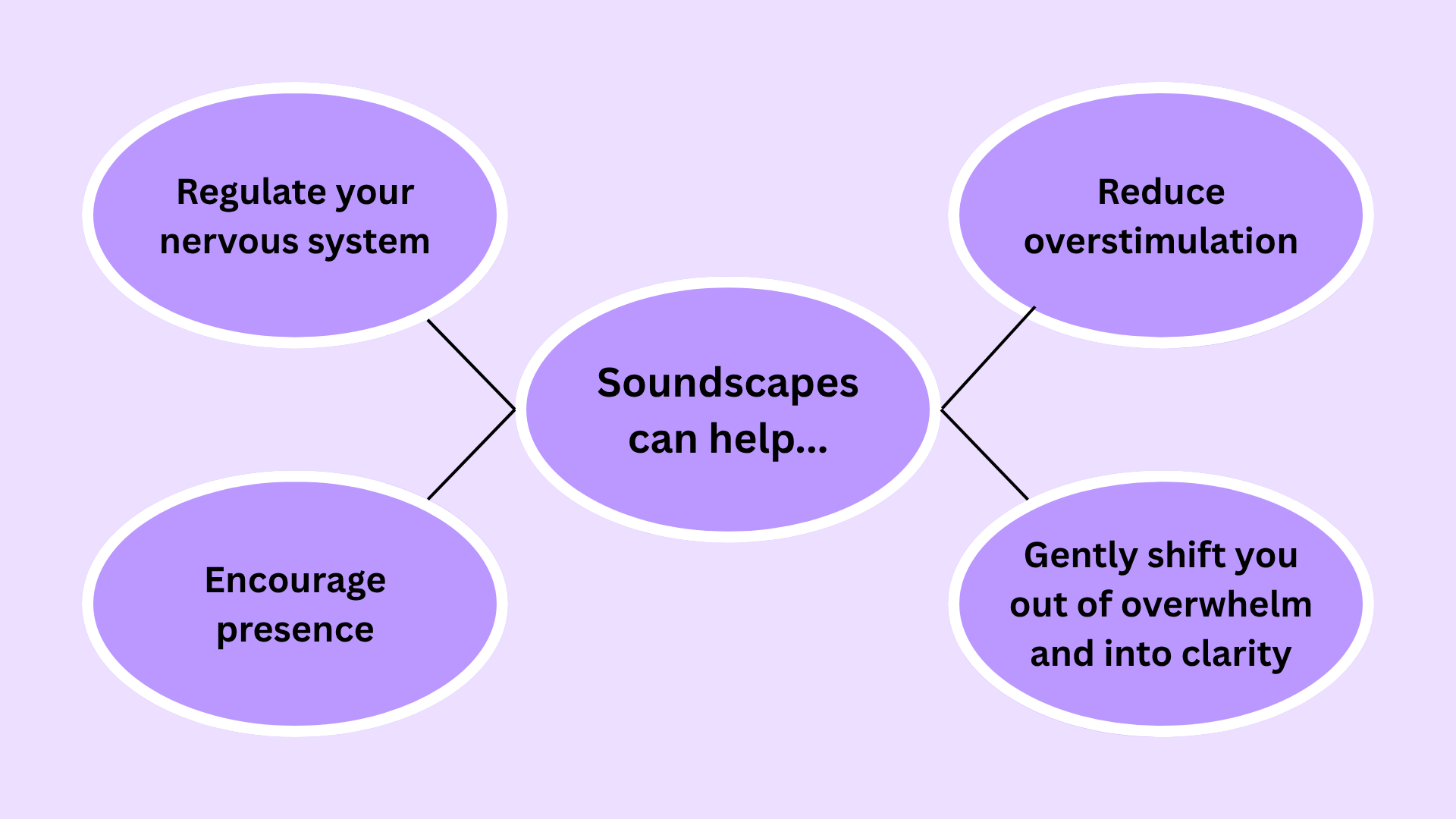You’re tired. But not in a way sleep seems to fix. Your to-do list feels like a mountain, but your brain feels like it’s underwater. Sound familiar?
It’s easy to label this state as “just burnout,” but sometimes what you’re feeling isn’t full burnout—it’s brain fog. And knowing the difference matters.
Because how you recover depends on what your mind and body are actually asking for.
Let’s break it down—then explore what kinds of soundscapes and audio support can help you feel a little more like yourself again.

What’s the Difference Between Burnout and Brain Fog?
They overlap, but they’re not the same.
Burnout is a state of emotional, mental, and physical exhaustion caused by prolonged stress—usually from work, caregiving, or other long-term pressure. It builds slowly and seeps into everything.
Brain fog, on the other hand, is more like a cognitive “glitch.” It might show up after:
- A bad night’s sleep
- A stressful meeting
- A hormonal shift
- A long scroll session on social media
It’s not always deep exhaustion—it’s more like a mental haze where thinking clearly feels like swimming through soup.
You can feel both at once. But the path out isn’t identical.
Signs You’re Dealing with Brain Fog
- You're reading the same sentence five times and still not absorbing it
- You forget what you were just doing mid-task
- Words feel harder to find, even though you're not physically tired
- You feel "off" but not necessarily sad or stressed
💡 Brain fog is usually temporary—and often related to overstimulation, poor sleep, blood sugar crashes, or too much digital noise.
Signs You’re Dealing with Burnout
- The thought of opening your laptop gives you a wave of dread
- You’ve lost interest in things you used to enjoy—even outside work
- Your body feels heavy; your emotions feel flat
- You fantasize about quitting everything just to feel peace
💡 Burnout often needs more than a break—it might require rethinking workload, boundaries, expectations, or even your environment.
So… What Should You Listen to?
Audio can’t solve burnout. But the right soundscape can:
- Help regulate your nervous system
- Reduce overstimulation
- Encourage presence
- Gently shift you out of overwhelm and into clarity

Let’s explore what to listen to depending on what you're feeling:
🌫 When You’re Foggy: Sounds to Clear the Static
Your brain isn’t broken—it’s tired of processing noise. Try:
- Brown noise for grounding
- Low-fi beats with no lyrics to re-engage cognition
- Binaural beats tuned to alpha waves for calm alertness
- Nature sounds like running water or rustling leaves
These sounds help reduce cognitive load and re-sync your brain’s rhythms to something steady and manageable.
✨ Try pairing sound with a quick reset activity: standing stretch, hydration, walking away from your screen.
🧯 When You’re Burned Out: Sounds to Help You Feel Again
If you’re emotionally depleted, try audio that brings feeling back into the room—without demanding your attention.
- Instrumental film scores that spark a sense of calm courage
- Ambient soundscapes like distant thunderstorms or soft piano
- Musical textures like droning pads or meditative chanting
These aren’t for productivity. These are for permission—to sit, feel, cry, or simply exist.
✨ Consider combining this with journaling, laying down, or doing absolutely nothing.
What Not to Do When You’re Foggy or Burned Out
- Don’t blast stimulating playlists thinking it’ll “snap you out of it”
- Don’t punish yourself with guilt-based productivity videos or harsh alarms
- Don’t ignore the signal your body is sending
Sound can nudge. But it’s not a shortcut. Use it like a tool, not a fix.
When to Seek More Support
If burnout lingers for weeks (or months), it’s okay to ask for help—from a therapist, a doctor, or even your workplace if possible. You deserve a work-life setup that doesn’t require constant recovery.
If brain fog becomes daily and disruptive, it could be a sign of deeper health imbalances—hormonal shifts, nutritional deficiencies, or chronic stress.
Listening to your body is a skill. And tuning into sound is one way to do just that.
Final Thought: Start with Sound, Stay with Care
When you can’t think straight, don’t push harder. Try softer.
Sound can create a pause between the world’s demands and your nervous system’s capacity. That pause? It’s where healing begins.
Whether you’re foggy or fully burned out, choose sound that doesn’t just help you work—but helps you feel more like you again.
And that’s what real productivity should start with: presence, not pressure.

.png)

.avif)